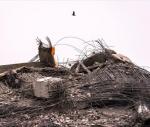You are here
Can BRICS expansion grant region freedom from US, Western meddling
Aug 30,2023 - Last updated at Aug 30,2023
The enlargement of the five member BRICS bloc amounts to a challenge to US hegemony, especially in this region. The grouping of Brazil, Russia, India, China and South Africa last week accepted the applications of Iran, Egypt, Saudi Arabia and the Emirates as well as of Ethiopia from Africa and Argentina from South America. The entry on January 1, 2004, of the new members, more than doubling the bloc, should change the character of BRICS and provide impetus for BRICS Plus efforts to provide multi-polarity in international affairs.
Sanusha Naidu, of the South African Institute for Global Dialogue told Al Jazeera, “This [development] has geo-economic, geostrategic and geopolitical implications. These additions will compel some BRICS governments to pay more attention to their Middle East policies, and for China and India to strengthen the existing policies.
BRICS was formed in 2009 by Brazil, Russia, India and China and admitted South Africa in 2010. On its own, BRICS has been seen as the main rival of the G-7 bloc of advanced industrial nations. Pre-enlargement, BRICS covered 26.7 per cent of the world's surface while its members were home to 41.5 per cent of the planet's population. BRICS launched a development bank with $50 billion in a bid to provide an alternative to the US-dominated World Bank and proposed a payment system to reduce the financial transaction monopoly of the Western powers. When in place, BRICS Pay could promote trade between sanctioned (Russia and China and now Iran) and unsanctioned members. BRICS has consistently opposed the dominance of the US dollar in world trade and encouraged payment in local currencies. BRICS has also rejected the use of unilateral sanctions which isolate targeted countries, shrink their economies and discourage potential trading partners.
From this region, Bahrain, Palestine, Kuwait and Algeria had also applied to join in this enlargement round while Sudan, Syria, Tunisia and Turkey have expressed interest in membership.
Why are countries in region so eager to associate with BRICS? The bloc can grant them some freedom from US and Western meddling. West Asia's strategic geographic importance has made the region an area of East-West conflict for millennia while its location and energy resources have intensified Western interference and intervention since the early 20th century.
Having only one oil and gas exporter, Russia, BRICS Plus has added three: Iran, Saudi Arabia and the Emirates which will give the bloc greater leverage on the volume and pricing of energy exports. Some commentators have quipped that the new name for the grouping should be “BRICS Plus OPEC” as the bloc has recruited heavy weights in Organisation of Petroleum Exporting Countries.
China's mediation of the March reconciliation agreement between Saudi Arabia and Iran has reduced regional tensions and regional rivalries and made it possible for them to cooperate within BRICS Plus. Both longstanding US allies, Saudi Arabia and the Emirates have recently sought to balance their options and adopt policies which are in their national interests rather than follow the US diktat.
Egypt, another erstwhile US ally, Saudi Arabia and the Emirates have seen the US pivot East to challenge China while repositioning and reducing its commitments in the region. Meanwhile, Riyadh and Abu Dhabi are assured by China and Russia that they do not demand fealty as the price of cooperation and collaboration while the US says, "My way or the highway."
New recruits Egypt, Saudi Arabia and the Emirates have demonstrated independence by refusing to take sides and sanction Russia over the Russo-Ukraine war, which they agree was precipitated by NATO's post-Soviet eastward expansion which prompted Russia to warn repeatedly over 20 years that Ukraine was a "red line".
Iran sees membership in BRICS Plus as a means to ease the iron grip of US sanctions which have contributed considerably, along with mismanagement and corruption, to that country's economic meltdown. Having reestablished relations with the Arabs after reconciling with Riyadh, Tehran also regards BRICS Plus as an opportunity to boost ties with India, Russia, China, Africa via Ethiopia (which hosts the African Union) and South America via Argentina.
Naidu said that “having Iran in the BRICS sends a massive powerful message to the G-7, to the Global North, to Washington” which have ostracised and sanctioned Iran for four decades. By granting Iran membership, BRICS has sent a message to the Global North: The message says, "Your problems are not our problems." This also goes for the North's problems with Russia and China, BRICS's prime movers.
BRICS Plus cannot replace non-alignment which emerged after World War II during the Cold War when Soviet Russia and China opposed the West and Western colonised countries were striving for independence. Highly respected independence leaders were the founding fathers of non-alignment: Jawaharlal Nehru, Gamal Abdel Nasser, Kwame Nkrumah and Tito. This was an era of great men and great expectations. Expectations which have not been realised. This region has been beset by war while Africa has been laid low by poor governance and conflict. Non-alignment waned and failed.
BRICS and BRICS Plus have to cope with an era of toil and trouble caused by post-colonial meddling and bullying, double standards, multiple conflicts, mismanagement, corruption, collapsed economies, millions of refugees and migrants, and climate change. BRICS Plus has to confront low expectations in order to make progress for the half of the world's people dwelling in BRICS Plus lands.














